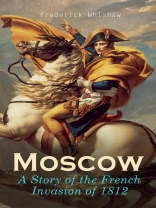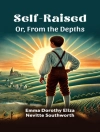This novel tells us about one of the essential Napoleonic campaigns through the lives of several Russian families, which changed drastically because of the war. From the very first pages, the novel captivates by a highly realistic description of the epoch. It opens with a marriage ceremony in the family of nobility. The marriage is set between a boy of ten and a girl of seven, and the marriage party is accompanied by heavy drinking of fathers and the priest, filthy jokes, and the descriptions of the dirty plates on the tables. As the events evolve, the story gives the same realistic account of the French invasion in Moscow: ‘During these first few days of the French occupation Moscow became a very pandemonium of pillage and violence, of smoke and fire, of orgies and of cruelties too horrible to relate.’ Being cast into such circumstances, the protagonists show incomparable courage and strength, inspiring more profound interest in the period’s history.
Over de auteur
Frederick Whishaw (1854 – 1934) was a British novelist, historian, poet, and musician born in Russia. He also was a famous author of children’s fiction at the turn of the 20th century. He spent his early years in Britain and first visited Russia at the age of 16. That visit made a strong impression and caused mixed feelings, which shaped the tone of his works. Whishaw was also one of the first translators of Fyodor Dostoevsky and set many of his own stories in Czarist Russia.












